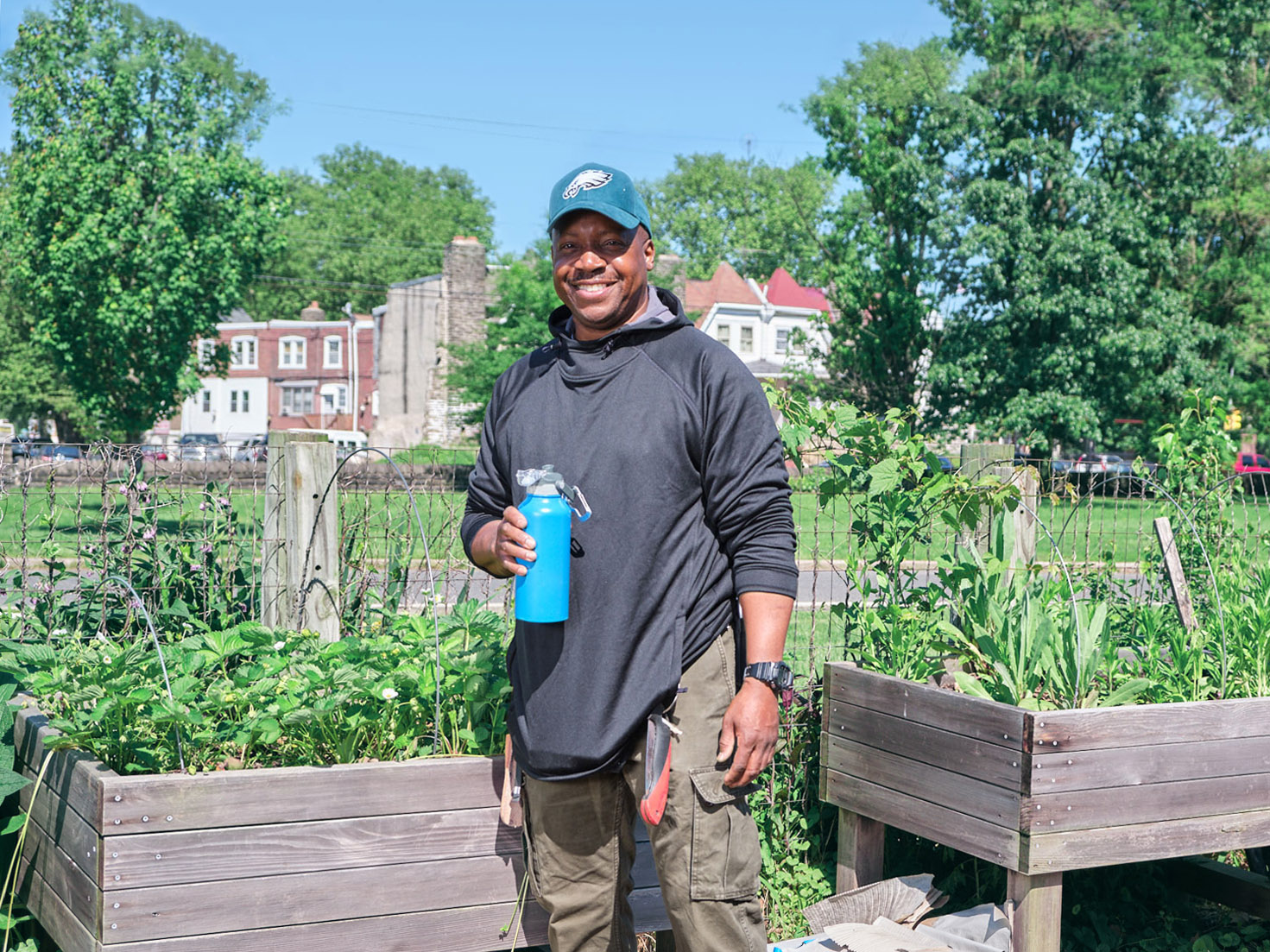Frequently Asked Questions
Learn more about Philadelphia’s clean, safe, affordable drinking water below.

Philly tap water is safe to drink!
How do we know?
Philly tap water is tested daily and consistently exceeds Environmental Protection Agency (EPA) standards. The Philadelphia Water Department reports water quality performance to the state and federal government and you can even see the Water Quality Report.
If you are unsure about the pipes in your home, PWD can conduct a free test for residential customers who have concerns about water quality at home. Call the hotline at 215-685-6300 to schedule an appointment.
What about for babies, children, and seniors?
Philly tap water is safe for everyone, including for making baby formula. Fluoride is added to Philadelphia tap water – and fluoride has the added benefit of helping to prevent tooth decay and cavities in both children and adults.
Where does Philly tap water come from?
Philadelphia’s water comes from the Schuylkill and Delaware rivers. It is treated, tested, and monitored in one of the City’s three water treatment plants. The Queen Lane Plant is located in East Falls and its water comes from the Schuylkill River; the Belmont Plant is located in Wynnefield and its water also comes from the Schuylkill River; the Baxter Plant is located in Torresdale and its water comes from the Delaware River.
Why is there chlorine in Philly tap?
Chlorine is a preservative added to keep the water fresh and free of bacteria. The chlorine levels are kept at levels that are completely safe to drink.
Why is there fluoride in Philly tap?
Fluoride is added to prevent cavities and tooth decay of residents. Adding fluoride to city drinking water is considered to be one of the ten greatest achievements in public health in the 20th Century! Studies have shown that fluoride can slow, prevent, or even reverse the formation of dental cavities.
Why does Philly tap taste the way it does?
Everyone’s tastebuds are different, but there are in fact several factors that affect the taste of Philly tap water. To start, minerals in the river waters as well as the natural environment can affect taste, as can seasonal changes in those environments. Additionally, some people are more sensitive to chlorine and notice the taste, since all public drinking water in the United States is required (by the EPA) to have added chlorine to preserve its freshness. We recommend chilling tap water for best tasting refreshment!
What can I do if I don’t like the taste of Philly tap?
Run it – The freshest water is running through the water main, which lives outside of your house, under the street. To get the best and freshest water in your house, turn on the faucet and let the water run for a few minutes. This flushes the water that may have been sitting in your home water pipes.
Chill it – Many people like the taste of cooler water better than room temperature water. Try filling a pitcher of fresh water and sticking it in the fridge. Water filters can also help remove chlorine flavor from water.
Lead
Is there lead in the city’s pipes?
No. City-owned pipes are not made of lead.
How do I know if I have lead pipes in my home?
Some homes built before 1960 may have lead pipes, or fixtures made from lead. Lead can be found in older brass fixtures and valves, and in old solder where pipes have been joined together. Having lead pipes doesn’t necessarily mean your home’s water has high levels of lead, but there are some steps you can take to make sure.
If you want to learn how to check for lead in your home’s plumbing system, you can find detailed instructions and resources on PWD’s Lead in Drinking Water info page.
PWD can conduct a free test for residential customers who have concerns about water quality at home. Call the hotline at 215-685-6300 to schedule an appointment.
What should I do if I have lead pipes?
There are immediate steps you can take to reduce the risk of lead exposure related to water use.
- Always drink fresh water – flush your pipes by running cold water for 3 minutes first thing in the morning and after returning to your home at the end of the day, before drinking the water. This ensures that you are getting fresh, cold water directly from the water main and avoiding water that’s been sitting in your pipes overnight (or all day).
- Regularly clean your faucet aerator or screen if your faucet allows that to be done
- You can use filters that are certified for lead removal if you have issues with lead in your water or plumbing (including reverse osmosis filters, activated carbon filters, and distillation filters).
If you own your home and have a water service line made of lead and want to replace it, you may qualify for the City’s Homeowner’s Emergency Loan Program (HELP).
For more information, visit PWD’s Lead in Drinking Water info page.
So if my water has lead in it, where did it come from?
Any lead levels found in water are from plumbing on personal property. The Philadelphia Water Department treats and tests the water in order to make it safer for homes with lead plumbing, but there is always a risk of lead getting into water if you have lead in your home.
Tap vs Bottled Water
Is bottled water better than tap water?
No. As much as 40% of bottled water sold in stores actually comes directly from municipal tap water. And while tap water is regulated by the Environmental Protection Agency, bottled water isn’t, and is subject to less strict testing. The manufacturing, distribution, and disposal of bottled water is also harmful to the environment and bottled water contributes to litter in our neighborhoods.
How does the cost of bottled water compare to the cost of tap water?
Bottled water costs about $0.89 to $8.26 per gallon, while in Philadelphia, tap water costs less than 1 cent per gallon. Average bottled water drinkers spend between $200 and $2,000 per person, per year on water, while tap drinkers spend less than $2.00 – so bottled water costs hundreds to thousands of times as much as tap.
Why are plastic water bottles bad for the environment?
Plastic water bottles never break down or biodegrade, meaning they pollute our environment for thousands of years. Additionally, the cost of manufacturing, transporting, stocking, and disposing of large amounts of plastic water bottles has a huge environmental impact, compared to tap which is the most sustainable water choice.
Why does bottled water taste different from tap?
The usual difference that consumers notice between bottled water and public drinking water is that bottled water does not contain a freshness preservative, whereas public water contains chlorine to preserve its freshness. If you don’t like the taste of chlorine, cold water tends to have less flavor so we recommend putting a pitcher of water in the fridge to chill.
Top Tap Tips
How to have the best Philly tap water experience
1. Check your tap
If you have any reason to believe that your pipes are old or contain lead, check them or get them checked. (If it is silver/dark colored and not magnetic, it may be lead).
2. Run your tap
If no one has used the tap for six hours or more, run the COLD water for two and a half minutes before drinking the water or mixing with baby formula, to ensure that you get the freshest water possible, direct from the water main (not what’s been sitting in your pipes). Since tap water in Philadelphia costs less than a penny per gallon, this extra water use will only raise your bill by a couple dollars per month, still much less expensive than buying bottled water!
3. Recycle your tap
No need to let this running water go to waste! You can use it to water your yard/garden/houseplants, for cleaning, or even flushing toilets! Grab a bucket and collect!
4. Chill Out (your tap water)
Many people prefer the taste of colder water. Fill a pitcher and put it in the refrigerator to remove any undesired tastes and maximize the refreshment!
5. Filter your tap
While not needed for safety in Philadelphia, drinking water filters can reduce any unwanted flavors. If you don’t like the flavor of the water straight out of your tap, you can try using a filter pitcher, getting one that attaches to the faucet, or even installing one in your counter top or refrigerator’s water dispenser. Be sure to change the filter cartridge often, as recommended, to make sure it keeps working properly.
6. BYOT – Bring Your Own Tap (Water)
However you like to Drink Philly Tap at home, grab a reusable bottle or travel cup and take it with you! Find one in a color or pattern that showcases your personality – or decorate your own! If you like your tap extra cold, look for an insulated one to keep your H2O-to-go nice and frosty!
7. Tap into Free Refills
Philly is full of water fountains, bottle fillers, and courtesy water dispensers in parks, public buildings, and businesses, ready and waiting for you to help yourself to as much free Tap as you want. If there’s no obvious source of free water where you are, just ask – most likely someone will point you to a faucet or offer to fill your bottle/cup for you if it’s in a staff-only area. Check out the map of places to find drinking water in Philly by PHLASK .
